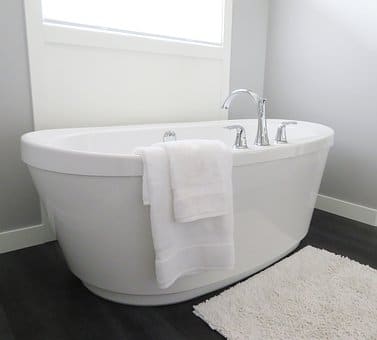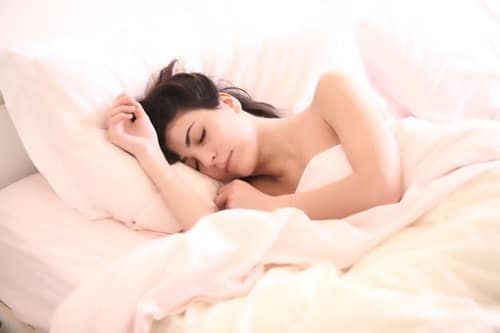Do you struggle to fall asleep each night, no matter what time you hit your pillow? Lack of quality rest is a cause for concern, as it takes a toll on your health. An estimated 30 to 40 percent of Canadians struggle with insomnia each year, and the condition is chronic for roughly 12 percent.
If you want what’s best for your body, you need to understand the root causes behind your insomnia and make treating it a high priority. Sleep is foundational to your well-being, so your health and wellness might depend on it.
The Benefits of Getting Good Sleep
Why is insomnia something you should worry about? Put simply; quality sleep is critical for the functioning of almost every part of your life. Your entire body depends on rest to work, so getting your nightly eight hours in will dramatically improve your memory, help you live longer, curb chronic inflammation, increase your creativity, improve your attention span, lower stress levels, and even help you maintain a healthy weight.
Most adults need between seven to eight hours of sleep each night, and you aren’t doing your body any favours if insomnia is cutting you short.
What Causes Insomnia?
Defined as the inability to fall asleep or stay asleep at night, insomnia is a sleep disorder that affects millions each year. It often leads to daytime exhaustion, mood swings, irritability and a higher risk of developing chronic disease. Sometimes the condition lasts just a few days before your sleep schedule rights itself, but for a quarter of sufferers, insomnia persists for weeks, even months at a time. Spending eight hours in bed each night won’t necessarily spare you from insomnia, as the condition is primarily caused by trying and failing to fall asleep.
While insomnia is one of the most common sleep complaints, it’s technically not a single sleep disorder. Instead, insomnia is usually a symptom of a more significant health problem, which might be caused by a variety of conditions or lifestyle factors. Some common causes of insomnia include the following:
Stress and Anxiety:
If you go to bed weighed down with worries about the day, it’s inevitable falling asleep might become difficult. Anxiety can lead to tension headaches and overstimulation in your brain’s neural synapses that keeps them firing when you want to fall asleep. Many sufferers find that the quietness of nighttime triggers the worst of their anxiety and keeps them from falling asleep.
Depression:
When it comes to depression and insomnia, it can be difficult to determine what causes the other. Research shows that insomnia is a common symptom of depression, but chronic insomnia is also likely to lead to depression. In the same way, the symptoms of depression (low energy, lack of motivation, general apathy) are also side effects of not getting enough sleep.
Underlying Medical Issue:
Many medical conditions can lead to insomnia, including kidney disease, cancer, asthma, arthritis, Parkinson’s, hyperthyroidism, and more. Sometimes insomnia will be the first symptom to show itself, meaning you might not immediately link it to a larger medical issue.
Medication Side Effect:
Prescription medications come with many side effects, including insomnia. Antidepressants, ADHD stimulants, blood pressure medications, and some contraceptives are particularly likely. Unexpected stimulants in your medicine are also common triggers. Cold and flu medications often contain some alcohol, and pain relievers like Midol tend to have caffeine.
Sleep Disorder Symptom:
While most people consider insomnia a sleep disorder, it can also be a symptom of other sleep disorders, such as restless legs syndrome or sleep apnea. Treating the underlying causes of these might be the right choice for curing your insomnia.
Lifestyle Factors:
How you live is closely linked with how well you sleep. A hectic lifestyle, irregular hours, unhealthy food, and too much caffeine or alcohol can all trigger insomnia, as can excessive light levels and stimulation late at night.
If you regularly struggle to fall asleep or stay asleep, consider reflecting on factors of your life to determine what might be triggering your insomnia. While the natural insomnia-fighting techniques I mention here will undoubtedly help, identifying the root of the problem will make your treatment more effective in the long run.

Natural Ways to Overcome Insomnia
The good news? Many causes of insomnia can be cured naturally. Below are some of the best ways that I’ve found to combat chronic wakefulness and help you sleep better each night. Try them out for yourself, and you may notice a difference in the quality of your sleep right away.
If you think your sleep problems are caused by medication or an underlying medical condition, it’s important to make an appointment with your doctor right away.
1. Magnesium Glycinate
Your body needs magnesium to function, yet magnesium deficiency is one of the most common deficiencies in the modern world, leading to irritability, lethargy, anxiety, muscle cramping, and insomnia.
Your brain needs magnesium for optimal neural functioning, and keeping your levels high will also improve sleep quality and improve your attention span. While humans once got all the magnesium they required from dirt particles in their food, the overly sterile conditions today can make it difficult to get the necessary amount. If your levels are low, taking a magnesium glycinate supplement can normalize your sleep schedule. One study showed that boosting magnesium levels increased slow-wave sleep by 63 percent in patients, which in turn reduced cortisol levels and normalized sleeping patterns.
To experience the benefits of magnesium glycinate for yourself, consider taking 200-400 mg a day, starting at the low end and increasing the dosage after a few weeks if you aren’t experiencing results.

2. AM Exercise Routine
Exercise is good for your body. There’s no surprise there. What you might not know is that getting in a workout can improve your sleep, especially if you exercise first thing in the morning.
The benefits of exercise for your sleep schedule are multifaceted. First, physical activity is a beneficial stressor for your brain, which it compensates for by increasing the time you spend in a deep, restorative sleep at night. Second, exercising raises your core temperature, only to drop it again hours later. This natural temperature drop makes it easier to fall asleep and stay asleep longer each night.
Though it seems counterintuitive, morning workouts are the best for your sleep schedule. The National Sleep Foundation states that people who workout on a treadmill around 7 am tend to sleep deeper and longer each night, increasing the amount of time that their body spends in a restorative sleeping phase.
If nothing can convince you to be a morning person, the next best option is working out at the same time each day. This routine sets up your circadian rhythms so that your body knows what to expect throughout the day and is better prepared to wind down for falling asleep when necessary.

3. Epsom Salt- Infused Bath
It turns out that there’s a lot of truth to the rumour that a hot bath will help you fall asleep- especially if you add Epsom salts. This naturally occurring mineral compound is readily absorbed through your skin, and a single bath can give you a potent dose of magnesium. As stated earlier, magnesium is an insomnia cure because it restores neural function and normalizes healthy sleep patterns.
For those that prefer to forgo an oral supplement, soaking in an Epsom bath before bed will give your body a similar dosage while enjoying the soothing benefits of hot water in the process. In fact, many Epsom salt bath enthusiasts find that each bath can ease their stress levels and promote relaxation, help their body detox, ease muscle pain, and calm overactive thoughts before they spiral into insomnia.
To enjoy the benefits of an Epsom bath for yourself, fill a tub with warm water and add between half a cup to two cups of Epsom salts to the water. It’s a good idea to start with less and add more as you need it. You should soak for half an hour before going to bed to improve your chance of falling asleep fast.

4. Valerian Root
As a standard ingredient in sleep-promoting teas, valerian root has long been valued for its ability to work as a sedative and anti-anxiety treatment. As a perennial flowering plant that’s native to Europe, valerian root contains volatile oils that produce a calming, restorative effect on your central nervous system. Technically, these oils increase your brain’s GABA (Gamma-aminobutyric acid) level to sedate it so that you can sleep.
This herbal sleep cure has been used as a medicinal herb since the time of Hippocrates, and studies show that it both reduces the time that it takes you to fall asleep and improves the quality of the sleep you get. Best of all, valerian has fewer side effects than prescription medications, and it won’t leave you with morning drowsiness once you wake up for the day.
You can take valerian in numerous forms, including as a tea, tincture, essential oil, or capsule. It tends to be most effective after it’s had some time to build up in your system, so you might need to take it for two or more weeks before you notice much improvement. Once you start sleeping better, keep taking 120-200 milligrams of valerian twice a day for up to six weeks.

5. Eliminate ‘Blue Light’ from Screens
If you’re like me and love technology, then working on your phone, computer or tablet is part of everyday life. Before the modern age, the only evening light that humans enjoyed came from dim oil lamps. Today, artificial light abounds, and the late-night light stimulation isn’t doing your body any favours. Overexposing yourself to unnatural lighting can mess with your body’s biological clock and disrupt your natural sleep cycle. Electronic devices are the worst offender, as the light they emit is within the blue wavelength, meaning that they prevent your body from secreting the melatonin it needs to fall asleep. This in turn, tricks your brain into thinking it’s daytime.
Studies show that spending too much time on screens (in the evening especially!) disrupts your internal clock, causing you to have difficulty falling asleep later. To stop compromising your sleep, you need to cut out screen time about three hours before bed. Red light doesn’t create the same confusion for your brain, so consider reading with a dim red night light. If blue light exposure isn’t optional, you can wear blue-blocking glasses or install an app on your computer that filters out the blue and green wavelengths for you.

Help for Insomnia at The Dempster Clinic- Center for Functional Medicine
If you’re looking for better ways to fight insomnia, The Dempster Clinic- Center for Functional Medicine is here to provide you with the help you need. We offer a variety of approaches for finding natural sleep aids that are customized to your individual needs. Please schedule an appointment today so that we can discuss the best way to combat your insomnia and improve your sleep quality immediately.
As an opportunity to meet each other, I am pleased to offer you a Complimentary 15-minute Discovery Call. During this complimentary session , we will discuss your health goals and how you will benefit from the services I provide. For your convenience, this session can take place over the phone or in person at the clinic.
I invite you to schedule an appointment today! I look forward to treating you soon.
Dr. John Dempster
The Dempster Clinic- Center for Functional Medicine

